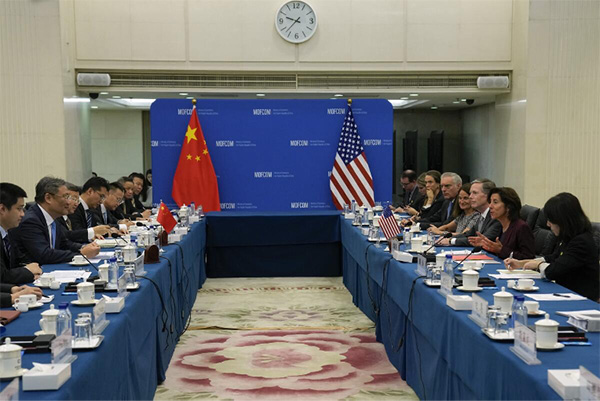Practical tips for multinational companies to prepare for challenging and evolving regulatory and enforcement landscape in the U.S. and China.
In recent years, the rising tensions between the United States and China have resulted in an increasingly challenging and sometimes unpredictable environment for multinational companies (MNCs) with a presence in both countries. This article provides a high-level summary of the regulatory and enforcement challenges faced by MNCs, discusses potential upcoming regulations and trends, and recommends specific steps for MNCs to navigate these uncertain times.
Without a doubt, there is a growing number of regulatory and enforcement activities in both the U.S. and China that impact MNCs. For example, the U.S. released extensive export controls rules targeting China’s advanced computing and semiconductor sectors in October 2022, which were supplemented by a new set of rules released on October 17, 2023, aimed to further curb China’s ability to produce advanced chips and develop advanced technologies. Along similar lines, President Biden issued an Executive Order (E.O.) in August 2023 to restrict U.S. investment in the semiconductors and microelectronics, quantum information technologies, and artificial intelligence sectors of China. Further, U.S. enforcement involving China’s supply chain has been on the rise, affecting many industries such as solar, automotive, and aluminum.
On the other side, China has been ramping up its efforts to roll out national security-driven legislations, including implementing a web of data protection regulations, passing the Anti-Foreign Sanctions Law, and updating its Anti-Espionage Law. Additionally, recent enforcement actions against certain consulting firms in China and the reported increased use of exit bans that prohibit departure from China have caused many MNCs to question the seemingly deteriorating business environment in China.
Nevertheless, most of these activities have been rather targeted and are unlikely to have a sweeping effect on all industries across the board. Moreover, both sides are showing intentions to improve the current environment and promote trade between the two countries, including visits to China by multiple members of President Biden’s Cabinet, which are welcoming positive developments to reestablish bilateral dialogues. Recently, China has also issued more guidance to encourage foreign investment and facilitate cross-border data transfers, such as the “24 Measures” on further optimizing the foreign investment environment.

While there are signs of improvements, the U.S. is likely to issue more trade and investment restrictions and export controls targeting China in the coming year, including expanding the semiconductor export controls rules to the Middle East and tightening restrictions on China’s access to cloud computing.
Most notably, as directed by the August 2023 E.O., the U.S. Department of Treasury is expected to issue regulations to identify categories of transactions involving sensitive technologies and products that U.S. persons are prohibited from or required to provide notifications before engaging in with China and potentially other countries. The restrictions will cover monetary investments, as well as intangible benefits such as talent, market access, and know-how. However, the E.O. notes that open investment remains the policy and that the regulations are meant to target specific risks laid out in the E.O.
In addition, the Department of Justice and the Department of Commerce are highly focused on China-related enforcement and are expected to increase their enforcement efforts with additional resources. In February 2023, the Departments launched the Disruptive Technology Strike Force to bring together prosecutors and investigators from various federal and state agencies. However, cross-border investigation and enforcement are time-consuming, and the extent and intensity of the enforcement of the rules and regulations targeting China remain to be seen.
Given the complex and unpredictable relations between U.S. and China, it is prudent for MNCs to be prepared to handle the evolving regulatory and enforcement landscape. Companies may consider the following recommendations:
Despite the challenging circumstances and increased rhetoric about decoupling from China, such efforts for MNCs with long-established ties to China can be difficult and expensive and may not be necessary with exercising increased caution, maintaining an effective compliance program, and taking appropriate proactive measures.

Author the Author:
FeiFei (Andrea) Ren is Counsel in Miller & Chevalier’s International Department. Her practice focuses on government enforcement actions, internal investigations, international corporate compliance, economic sanctions and export controls, and white-collar defense for a wide range of domestic and international clients. Ms. Ren’s compliance practice includes helping clients design, implement, and improve their corporate compliance programs. www.millerchevalier.com
Scott Ellyson, CEO of East West Manufacturing, brings decades of global manufacturing and supply chain leadership to the conversation. In this episode, he shares practical insights on scaling operations, navigating complexity, and building resilient manufacturing networks in an increasingly connected world.